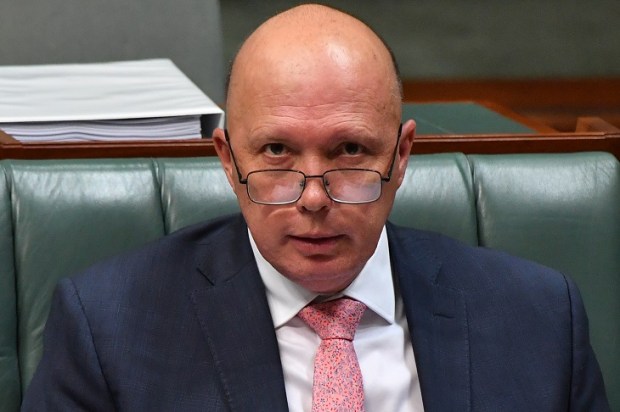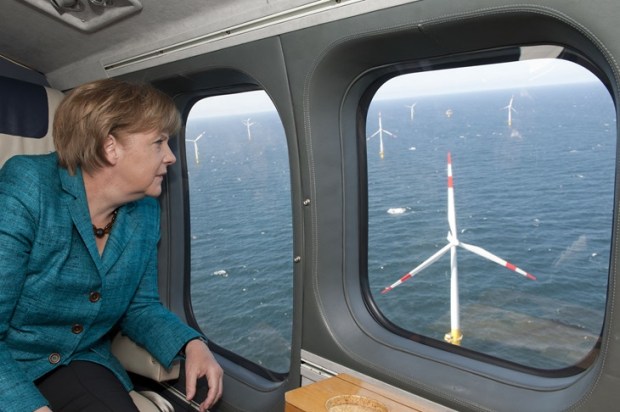Covid is a mismanaged economic disaster that has done more damage to the financial, social, ethical, and legal structure of Australia than most commentators are prepared to admit.
There is no point rising to the defence of your favourite political party on this issue. Sooner or later, the facts on the ground are going to manifest into an undeniable mess of such vast proportions that NASA will be on the phone asking why there’s a black hole growing within Canberra, sucking in everything and everyone.
Global catastrophes always reduce themselves to matters of electability, particularly when politicians find themselves gathered together like lemmings on the way to the nearest cliff. In 2019, the citizens of the world watched their respective leaders cower to the unchallenged advice of an international bureaucracy with a questionable reputation, accepting post-it notes from the World Health Organisation as if they were commands.
What’s done is done.
We are in 2021, and according to our premiers and economists – everything is fine. Things might be ‘fine’ if you cut your paycheque straight from the Treasury, but the bulk of Australia is comprised of ordinary people grappling with a financial nightmare so severe that it has spawned a mental health crisis.
The government’s solution?
Increase funding to mental health call centres – which is about as useful as sending therapists to drought-ravaged farms instead of a water tanker and semi-trailer full of hay. Rather than solving the root cause, politicians have a habit of flooding the nearest bureaucracy with money before posing for a photo op. One tick for the press and another for the public service.
Economically traumatised Australians are subjected to the feverish publishing of Covid statistics. This bombardment, conducted without the necessary context required to gauge risk, has transformed us into an irrational, witch-hunting, thrall of paranoia. Scared people make safe election seats, but is this really the Australia we want to build for our children?
Australia is in danger of creating a welfare state, right at a moment in history when collectivist movements are on the prowl, looking for impoverished, desperate people to lure into their political revolution. Soon, it won’t be a matter of laughing off the imagined grievance of school children glueing themselves to the pavement, we will be dealing with a disillusioned populace so angry at the entire system of government that they might consider taking the ‘free money’ offered by Labor and letting the radical Greens do what they wish with our liberties.
As one small business owner said to me, on the brink of losing three generations worth of work, ‘What’s the point of working all my life to build a future for my children if the government can turn around and take everything? Who would start a business now?’
The Constitution is a guarantor of a sacred social contract between the state and the individual. Politicians have defaulted on this with a portfolio of medical mandates that defy historical precedence. There is an expectation that the state will only infringe upon rights when gravely ill. Did Covid cross that threshold? No one asked.
Common sense was doomed the moment politicians publicly tied the performance of the virus to the security of their political reign. It is their fear that allows once unconscionable discussions of medical passports and mandatory vaccines to take place. The press doesn’t help, panting at the door, ready to use every Covid death as justification for removing people from political office. Both groups have to desist with their mutual obsession.
The Australian Dream has been the central victim of Covid mandates.
Great sacrifices are made in the quest to own a house and a business. In 2018, there were 2.1 million small businesses operating in Australia – or 97.4% of all businesses employing around 44% of the workforce. Under Covid, more than half listed themselves as significantly challenged by the economic conditions and as of February 2021, 41% said that they only had enough cash on hand to cover three months of operation.
Three of the biggest industry employers in Australia are retail, hospitality, and tourism. Crucially, the survival of these industries is closely related to unemployment. When they fold, the welfare bill soars.
Judging by their actions and rhetoric, politicians are unaware that these key industries do not work on a regular influx of cash like government departments, but rather subsist on a cyclic income based around a calendar of crucial trading days which can account for as much of a quarter of their turnover. Boxing Day in retail and New Year’s Eve in hospitality, are two days that carry businesses through the soft opening months of the next year while clearing debts accumulated by old stock from the last season. Daniel Andrews is a particularly slow learner, with his snap Valentine’s Day lockdown destroying restaurants, florists, and their respective suppliers – all businesses which had spent months preparing for that single day of trade with no possibility of recovering costs.
Not every business is suffering. In Australia there is justified outrage at the special treatment given to Coles, Woolworths, Bunnings, and Kmart who were able to remain open during the lockdowns because they were deemed ‘essential’.
Every business is essential, especially to the families who live off of them. There has been no medical justification offered to explain why converging the population of a suburb on a single shop is ‘safer’ than spreading them out across lots of independent shops. Statistically speaking, forcing everyone into one location poses the highest risk of viral transmission – but who cares about logic when you need to front a press conference with a line about how you’re ‘doing something’?
Liberal governments in particular, are adverse to government welfare propping up private enterprise but – and it’s a big but – the moment that the government took control of the market via emergency laws, it became financially, if not morally, responsible for the business sector.
Usually in a crisis, the market is free to adapt. There are casualties, but also growth. This is how economies throughout history have hit boom periods after economic downturns. Presuming this will naturally happen in Australia’s case is to misunderstand why it happens. Our restrictive workplace laws prevent flexibility, especially when coupled with copious setup costs taken by every level of government, especially councils, all of which construct a forest of red and green tape. Only those with a significant chunk of capital can start a new business.
‘JobKeeper’ has been the halfway measure dished out by the Federal government to mute the screams of business. Paying a fraction of a company’s wage bill is not enough to save companies whose customers are locked out by the mandates of premiers. They still have utility bills, rents, mortgages, stock, maintenance, and accounting fees to contend with. How are these businesses surviving? Mostly by selling private assets, draining personal savings, and engaging in unsustainable but good-natured deals with their business clients – limping from lockdown to lockdown.
Business owners are making sacrifices while politicians colour the truth, stringing them along with promises they do not intend to keep. If Australians had been told at the outset that there was a real possibility that the lockdowns would proceed for years, a significant amount would have cut and run, keeping savings in the bank to emerge from the disaster. Now, those who are most likely to rebuild have nothing left to do it with.
For those businesses that managed to survive with JobKeeper, the cutting off of government assistance is a delicate business.
We know that Labor is frequently blinded by ideology, but it happens to the Liberal Party as well. As conservatives, it is our duty to point out this error in the hope that a disaster can be averted.
Entrenched in the Liberal mindset is the notion that JobKeeper should be cut as soon as possible because welfare dependency is bad. The nation is amassing debt to prop up the private sector and the Treasury is panicking. It is quite right to say that Australia cannot remain on welfare forever. It costs money for the state to employ the nation, and that bill is footed by a rapidly decreasing pool of business earners.
The real purpose of JobKeeper is to ensure the survival of the tax revenue, but if the exit strategy is bungled, it will have been a costly exercise in absurdity.
Before JobKeeper can be cut, the government must restore market certainty. Premiers cannot keep locking states down and restricting turnover with limits on patronage. Hospitality businesses have their survivable margins calculated on capacity. The government will have to maintain this for at least two months to give businesses a chance to recover, particularly with an extremely soft local market.
If we proceed with the government’s plan, we will see thousands of businesses shut as soon as JobKeeper ends because they have no realistic prospect of recovery and no faith to borrow. These business owners and their staff add to the welfare pool, leaving the state covering their full wage. Angry at losing their business through no fault of their own, it is unlikely that these people will return to running productive enterprises for many years. In turn, they will also lose their homes and their primary asset for funding their retirement.
Combined with this is the threat to increase the GST – a tax that severely impacts the most vulnerable industries. The government must exercise self-control, cool its heels and lower taxes. The private sector has to be allowed to accumulate wealth, expand, and employ those on welfare – lowering the taxpayer burden. Only when the economy has grown significantly can the Treasury sink its fangs in. If the government is strapped for cash, it should be looking toward foreign aid, renewables grants, and the outrageously inflated public service salaries.
The government likes to point to a general laziness of Australians on welfare by using their favourite quip about fruit picking. Fruit picking is a niche, low-paid, remote industry impossibly far from the cities where people have commitments they cannot abandon for a week’s pay. This discussion masks the terrifying mathematical reality that with international borders closed, 70-90% of customers in key industries are simply not there. No amount of generosity from the Australian people can cover the physical gap. These businesses will close. This is not something that can be adapted out of. The effects will be felt hardest in remote areas sustained by tourism, where the damage will extend to the entire town.
Labor, meanwhile, are delirious at the prospect of a welfare class dependent on the state. The left don’t like giving money to private industry because of their communist roots, so they focus on promising to raise Jobseeker as a short-cut to election victory. Give poor people money – take power.
Their argument is that Jobseeker (previously Newstart) is insufficient. It was a discussion that began pre-Covid, back when the Liberal Party had the opportunity to handle the issue in a sensible fashion. Newstart was not correctly adjusted for the sharp rise in Australia’s cost of living, but the politicians at the time were appealing to their base by clamping down on welfare. Fast forward to 2021 and the Liberals now have a significant amount of their voter base on welfare due to Covid, and so they have been forced to concede to Labor under duress. Labor have all the traction required to push the Jobseeker amount to dangerously high levels, where the government risks competing as an employer against struggling businesses who have no money to pay their current bills, let alone lift wages. The result is incentivised welfare.
This is a cycle that gets worse with every passing day.
It is like watching a storm gather, feeding on unrelated mistakes and oversights across a diverse landscape. There are too many things getting in the way of sensible economic decisions, not least of all the desperation of political leaders to hang on to power.
Covid is a political weapon, fashioned by China and wielded by both sides of the political field. If we keep cutting ourselves on its blade, will we recognise the post-Covid Australia?
Alexandra Marshall is an independent writer. If you would like to support her work, shout her a coffee over at Ko-Fi.
Got something to add? Join the discussion and comment below.
Get 10 issues for just $10
Subscribe to The Spectator Australia today for the next 10 magazine issues, plus full online access, for just $10.


























Comments
Don't miss out
Join the conversation with other Spectator Australia readers. Subscribe to leave a comment.
SUBSCRIBEAlready a subscriber? Log in